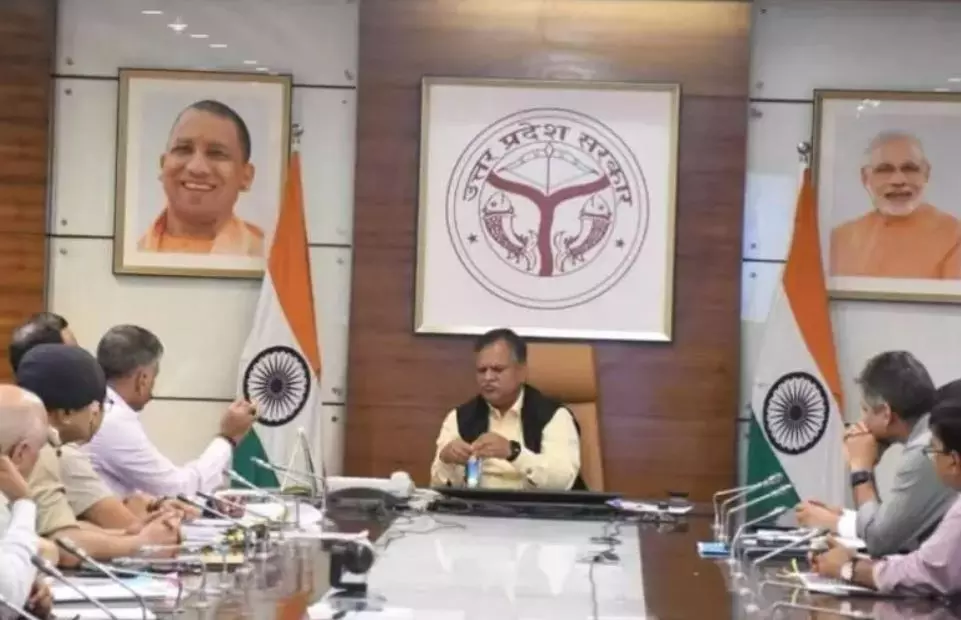
Uttar Pradesh Chief Secretary Manoj Kumar Singh (centre). File photo
3 reasons why UP govt wants Manoj Kumar Singh to continue as Chief Secretary
Manoj Kumar Singh is set to retire on July 31, but Yogi Adiyanath government seeks a 1-year extension amid ongoing friction between MLAs and UP bureaucracy

With Chief Secretary Manoj Kumar Singh set to retire on July 31, the Uttar Pradesh government has written to the Centre seeking a one-year extension for the 1988-batch IAS officer. At a time when tensions between public representatives and bureaucrats are escalating, the move signals the government's desire to retain a trusted hand during a crucial phase of its administrative and economic agenda.
There are three major reasons for the move.
Reliable and influential
One, Singh is widely seen as one of Chief Minister Yogi Adityanath’s most reliable and influential officers. His proximity to the Chief Minister is underscored by the high-stakes departments under his command, particularly those tied to economic growth and infrastructure development.
Also read: Bareilly teacher’s poem on Kanwar Yatra sparks row, case filed
Two, the letter to the Centre reportedly highlights his contributions to industrial growth and the state’s broader goal of becoming a $1-trillion economy.
Among Singh’s major responsibilities is his role as Additional Chief Secretary for Industrial Development — a post central to driving investment in UP. He also heads the Uttar Pradesh Expressways Industrial Development Authority (UPEIDA), which oversees marquee infrastructure projects such as the Purvanchal and Ganga expressways. These expressways are not only physical assets but also political symbols of the Yogi government's development push.
Also read: Defamation case: Lucknow court grants bail to Rahul Gandhi
The government argues that Singh’s continued leadership is essential for maintaining momentum in these projects, especially with the Investor Summit 3.0 and another groundbreaking ceremony scheduled later this year. These events are critical to attracting fresh investments and signalling continuity to domestic and global investors.
Three, the government's perceived need for political stability. The state is set to hold three-tier panchayat elections in early 2026, and the government is keen on retaining experienced leadership during the run-up. Singh, having already navigated several political and administrative transitions, is seen as a steady hand in managing both bureaucracy and electoral sensitivities.
Experienced in managing conflicts
The backdrop to the extension request includes rising friction between ministers and bureaucrats, with several Cabinet members, including the Deputy Chief Minister Brajesh Pathak, writing to the Chief Minister in recent months over departmental issues. While Singh has not publicly intervened, his role as the top bureaucrat makes him a key figure in balancing these competing interests.
Unlike some of his predecessors, Singh faces scrutiny over decisions taken in the industrial development department, particularly the waiving of large dues for two companies. However, the government appears to have weighed these concerns against his institutional knowledge, ongoing responsibilities, and proximity to key policy initiatives.
The final decision now rests with the Centre. While there are other senior IAS officers in contention for the post, including S.P. Goyal and Deepak Kumar, Singh’s proven track record and the state’s current development priorities could tip the balance in his favour. A decision is expected by July 30.
(This article was originally published in The Federal Desh)

